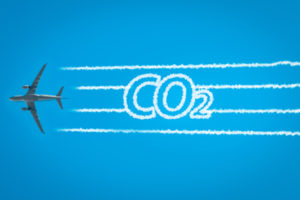
- Inclusion of emissions from flights to non-EEA countries
- Phase out of free allocations by 2025
- Updated notification rules for 2021 under international scheme (CORSIA)
MEPs agree to increase ambition for emissions reduction in the international aviation sector to achieve EU and global climate goals.
In a plenary vote on Wednesday, MEPs adopted their report revising the EU Emissions Trading System (ETS) for aviation with 479 votes in favour, 130 against and 32 abstentions.
The adopted text, which constitutes Parliament’s negotiation mandate with member states, proposes that the EU ETS should apply to all flights departing from an airport located in the European Economic Area (EEA) and that free allocations to the aviation sector should be phased out by 2025.
A derogation from the EU ETS should be provided for emissions from flights between airports located in an EU outermost region and airports located in another EEA region, and flights between airports located within the same outermost region.
MEPs want, as well, that 75% of the revenues generated from the auctioning of allowances for aviation are used to support innovation and new technologies.
More details on Parliament’s position are available here.
MEPs also voted on the Commission proposal to introduce an amendment to aviation rules in the EU Emissions Trading System (EU ETS). The text implements member states’ notification to EU-based airlines of their offsetting for 2021 under the Carbon Offsetting and Reduction Scheme for International Aviation (CORSIA) of the International Civil Aviation Organisation (ICAO). More details are available here.
Quote

Rapporteur Sunčana GLAVAK (EPP, HR) said: “With the ETS aviation report we are aligning the aviation sector with our climate goals. But, within that process, we have to offer decarbonisation solutions for the sector, which we managed to achieve in this committee with the introduction of sustainable aviation fuels (SAF) allowances. We are all aware that we have to focus on our climate goals, but we also cannot allow the industry to bear the whole burden. We must preserve our mobility and industry.”
Next steps
MEPs are now ready to start negotiations with EU member states.
Background
ETS aviation is part of the “Fit for 55 in 2030 package”, which is the EU’s plan to reduce greenhouse gas emissions by at least 55 % by 2030 compared to 1990 levels in line with the European Climate Law. Aviation accounts for 2-3% of global CO2 emissions and 3.7% in the EU. While the COVID-19 pandemic caused a temporary reduction of aviation traffic, projections point to an annual increase in aviation emissions at global and EU level with 53% by 2040, compared to 2017.

















